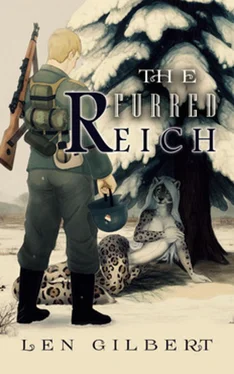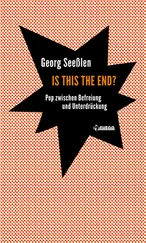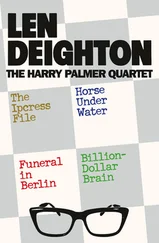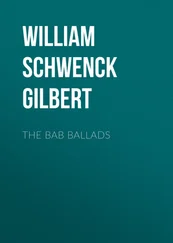“Stop right there. Hands up. Both of you. Now.”
The foxen both halted and raised their hands. The foxen did understand his language after all, it seemed.
“I know you both have knives. Drop them.”
They both dropped the knives. Hans put the foxes up against the tree while he shouldered his stuff and crawled out of the trench.
“Now how many else of you are out here tonight?”
The foxen didn’t answer. Hans nudged one of them in the back with the steel tube.
“Six or seven.” The vulpine squawked out.
Hans knelt down and picked up both corsairs. They were pretty fine blades.
“You’re going to walk straight west. This is the edge of your race’s country, is it not?”
The lead fox nodded.
“Then once I reach the edge of your forest I’ll let you both go.”
Russian partisans had taught Hans a thing or two. He intended on using the two foxen as a bargaining chip if he ran into more of their kind. He walked behind both of the furres. It would only be a few more hours until they were out. Definitely by morning.
“Have either of you heard of a black ship in the sky?”
The foxen looked at one another.
“…A black ship? No. Nothing like that, sir.”
“Alright.”
The three of them trudged on.
“You aren’t like other humans.” The lead fox warmed up, probably because he knew he wasn’t going to die.
“Yeah. I just want to get home. That’s all.”
“You must be a warrior at your home? I can tell that much.”
Hans never thought of himself as a ‘warrior.’ But of course, these furres didn’t know that Hans had run from the Don all the way to Kharkov.
For the next three hours they marched in silence. He saw the stark orange morning sun as they broke free of the treeline. Hans glanced into the foxens’ bright yellow pupils as he passed them onto the narrow trade road. He wondered how best to part with them. Not even the Wehrmacht manual had a word for etiquette in this situation.
“This is it… Thanks…”
“Uh, sir? May we get our corsairs back? We’ll get in big trouble if we show up without them.”
Hans looked down at the two knives strapped against his waist. He took one and slid it across the dirt road back to them.
“Sorry. I’ll need this one.”
Hans backed away and walked in a nearby ditch until the foxen were out of sight.
May 9th
Jochen stood in front of his tank crews, the gentle spring light glowing all around their blackened faces. He looked into the eyes of each one of them as he stood straight as an arrow before them in tank trousers, a leather jacket and weather-bleached officer’s cap.
“Kamerads. Thank you for everything. For your loyalty. For your years of willingness. Today Germany surrendered to the Allied powers. The… war is over…”
The thickness in Jochen’s voice was mercilessly cut into by the birds’ joyful singing. For the last month, whirling dust kicked-up from the Panzers hid from them the bursting spring. But the Panzers wouldn’t be doing so much longer.
Jochen Peiper’s division, the Leibstandarte, had been fighting almost nonstop since 1939, and after innumerable losses many in the Leibstandarte were just boys: Boys who had grown up during the war and knew little else. Battle was a reflex and the regiment had replaced their families. Everyone was prepared to go on.
Many of them looked on as if in a dream. Some couldn’t hold back their tears. For so long they had all longed for peace with a passion difficult to comprehend. Now it was here.
He watched them and relaxed his stance. This was no longer about combat-readiness. Or even morale.
“Please. Don’t do anything rash. There’s no sense in suicide… Because Germany will need all of you.”
At least Jochen thought so.
Soviet artillery gave its parting shots from the distance. Even after surrender there was a need for haste. Jochen’s Panzer regiment began its retreat through the dandelion-covered meadows and the radiant green grass of the Austrian countryside, away from the Soviets and toward the Americans. Unit after unit crossed the Enns River where they were to go into captivity. Jochen watched their backs disappear forever into the Panzers’ dusty wake. He ordered the men of the last four ‘Tigers’ covering the retreat to blow up the tanks. Only then did Jochen and his staff cross.
On the other side there were no Americans to be seen.
For Jochen, the war was finally over, and he had only place in mind: Home. While most of the crew went north, Jochen’s destination had him going west and into the safety of the mountains. To do so he would finally have to part with his staff and travel in a smaller group further into the mountains. It was hard to imagine that now was the last time they would be together. Everyone had tears in their eyes. One by one he said goodbye to them with a handshake.
Two battalion commanders, Knittel and Rettlinger decided to follow Jochen. So did his adjutant Koechlin. The fourth to follow was Paul Guhl, who now commanded a separate regiment, but was an officer of Jochen’s back in Kharkov with the half-track battalion.
Their collective destination was Bavaria. The group marched over rising mountain paths and crossed through forests and glades. For the first two nights they slept on haystacks. The next day it rained, but that night Jochen found an Austrian farmer who fed all five of them and gave them a sheltered barn for the night. It was the first time in months that they went to sleep without hunger or stress. The SS men graciously accepted a modest meal of chicken and eggs and then trudged off to their temporary refuge.
Sleep came quickly, and not long afterward Jochen’s subconscious went to work, spitting back all it had experienced over the years, but until now had no opportunity to talk about. He saw the faces of men he held dearly. He saw the faces of many he had lost. Visions of dead comrades and dead enemies appeared together, and in death there was no distinguishing the two. Poetschke, August Wien, Michael Wittmann, many others. He also saw men he had to leave, men who looked to him for guidance: Micheluzzi, Horst Schumann, Dinse, Paul Zwigart. And others.
But in his dream there was one face that he didn’t recognize. And it kept appearing between those he knew, as if the man had been dropped inside Jochen’s dreams from some place outside his mind.
“Hans.”
“Gefreiter Hans Hepner! Roll call!”
“…Hansie?”
Jochen felt himself jolted out of sleep. He rustled around and sat up, noticing shreds of pale moonlight seeping into the barn. Knittel, Rettlinger and Koechlin were all asleep. Guhl was sitting by himself in the far corner. Jochen roused up to his feet and sat next to him, the two of them staring out through the cracks.
“Can’t sleep, sir?”
The two were now of equal rank, yet Guhl still addressed him as a superior. Actually, there were no ranks anymore.
“No…”
“Bad dreams?”
“Yeah. Something like that. All of them keep coming to me in my sleep.”
His former subordinate nodded. “Me too…”
“I miss them already.”
“Yeah…”
There wasn’t much either could do, except just be there. After a moment Guhl glanced over to him.
“Jochen, do you know of a Landser named Hans Hepner?”
Peiper stopped staring out of the barn and whipped around to Guhl. “…Not until I fell asleep tonight. I assume you know of him?”
Guhl shook his head. “No. This Hans guy appeared in my dream, but for the life of me I’ve never seen or heard of the man.”
“It’s funny. I was about to ask you the same question. He also appeared in my dream. I’ll ask Teddy Wisch about it when I’m able to.”
Читать дальше












